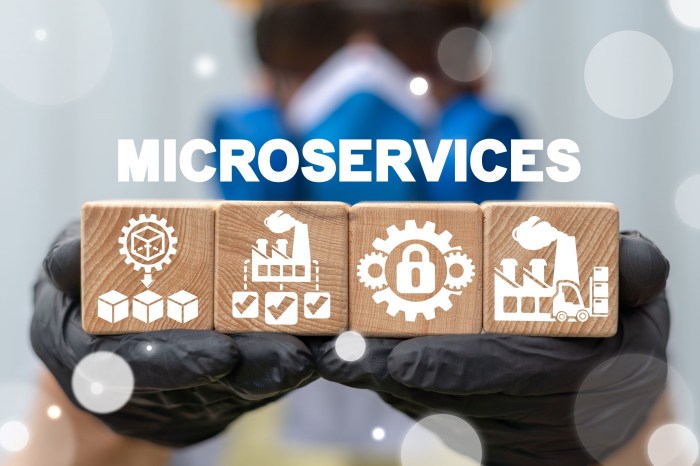Franchise agreements involve technology acquisition without r&d. – Franchise agreements involve technology acquisition without R&D, a topic of increasing relevance in today’s business landscape. This article delves into the intricacies of this practice, exploring its benefits, challenges, and implications for both franchisors and franchisees. By shedding light on the strategies and considerations involved, we aim to provide valuable insights and guidance for those navigating this evolving landscape.
As technology continues to reshape industries, franchise systems are recognizing the immense value of incorporating advanced technologies into their operations. By leveraging technology, franchisees can streamline processes, enhance customer experiences, and gain a competitive edge in the marketplace. However, traditional approaches to technology acquisition, such as investing heavily in R&D, can be time-consuming and resource-intensive.
Franchise agreements offer a unique solution by enabling franchisees to acquire technology without the need for costly and lengthy R&D processes.
Technology Acquisition and Integration

Technology plays a pivotal role in modern franchise agreements. It enables franchisors to standardize operations, improve communication, and enhance customer experiences. Franchisees, in turn, benefit from access to cutting-edge technologies that can streamline their operations and increase profitability.
There are several methods for franchisees to acquire technology without investing in R&D. These include:
- Licensing:Acquiring the right to use technology from a third-party vendor.
- Purchasing:Buying technology outright from a vendor or developer.
- Outsourcing:Hiring a third-party provider to manage technology services.
Successful technology integration in franchise systems requires careful planning and execution. Franchisors must provide comprehensive training and support to franchisees to ensure they can effectively utilize new technologies. Additionally, franchisors should establish clear guidelines for technology use to protect their intellectual property and ensure compliance with industry regulations.
Benefits and Challenges of Technology Acquisition

Benefits of Acquiring Technology without R&D
- Reduced development costs
- Access to proven and tested technologies
- Faster implementation timelines
- Enhanced competitiveness
- Improved customer satisfaction
Challenges Associated with Technology Integration
- Compatibility issues
- Training and support costs
- Security concerns
- Intellectual property disputes
- Resistance to change
Strategies for Overcoming Implementation Obstacles, Franchise agreements involve technology acquisition without r&d.
- Conduct thorough due diligence before selecting a technology solution.
- Establish clear implementation plans and timelines.
- Provide comprehensive training and support to franchisees.
- Implement robust security measures to protect sensitive data.
- Foster a culture of innovation and continuous improvement.
Impact on Franchisee Operations

Technology acquisition can significantly impact franchisee operations in several ways:
- Improved efficiency:Automation and other technologies can streamline operations and reduce labor costs.
- Enhanced customer service:Technology can improve communication with customers, provide real-time support, and personalize experiences.
- Increased sales:Technology can help franchisees reach new customers, track sales data, and optimize marketing campaigns.
- Improved decision-making:Technology can provide franchisees with real-time data and analytics to support informed decision-making.
- Increased compliance:Technology can help franchisees comply with regulations and franchisor standards.
To maximize the benefits of technology acquisition, franchisees should invest in training and support to ensure they can effectively utilize new technologies. Additionally, franchisees should regularly review and update their technology solutions to stay competitive.
| Benefits | Drawbacks |
|---|---|
| Reduced costs | Compatibility issues |
| Increased efficiency | Training and support costs |
| Improved customer service | Security concerns |
| Increased sales | Intellectual property disputes |
| Improved decision-making | Resistance to change |
| Increased compliance |
Legal and Ethical Considerations
Technology acquisition in franchise agreements raises several legal and ethical considerations:
Legal Implications
- Intellectual property rights:Franchisors must ensure that they have the right to license or sell technology to franchisees.
- Data privacy:Technology can collect and store sensitive customer data. Franchisors and franchisees must comply with applicable data protection laws.
- Antitrust laws:Franchisors must avoid tying arrangements that force franchisees to purchase technology from a specific vendor.
Ethical Responsibilities
- Transparency:Franchisors should disclose all material information about technology to franchisees.
- Fairness:Franchisors should ensure that technology acquisition terms are fair and reasonable for franchisees.
- Protection of intellectual property:Franchisors and franchisees should respect each other’s intellectual property rights.
Best Practices for Compliance and Protection
- Draft clear and comprehensive technology agreements.
- Implement robust intellectual property protection measures.
- Establish data privacy policies and procedures.
- Educate franchisees about their legal and ethical responsibilities.
- Monitor technology use to ensure compliance with agreements.
Future Trends in Technology Acquisition: Franchise Agreements Involve Technology Acquisition Without R&d.

Several emerging technologies are poised to impact franchise systems in the coming years:
- Artificial intelligence (AI):AI can automate tasks, improve customer service, and provide insights for decision-making.
- Automation:Automation can streamline operations and reduce labor costs.
- Cloud computing:Cloud computing can provide franchisees with access to scalable and affordable technology solutions.
Franchisors and franchisees should prepare for these future technology advancements by:
- Investing in research and development.
- Partnering with technology vendors.
- Training franchisees on new technologies.
- Updating franchise agreements to address emerging technologies.
FAQ Compilation
What are the primary benefits of acquiring technology without R&D in franchise agreements?
Acquiring technology without R&D allows franchisees to access cutting-edge technologies, reduce development costs, and leverage the expertise of the franchisor.
What are some common challenges associated with technology integration in franchise systems?
Challenges include ensuring compatibility with existing systems, training franchisees on new technologies, and addressing potential cybersecurity risks.
How can franchisors and franchisees overcome implementation obstacles related to technology acquisition?
Effective communication, thorough training, and ongoing support are crucial for successful technology implementation.